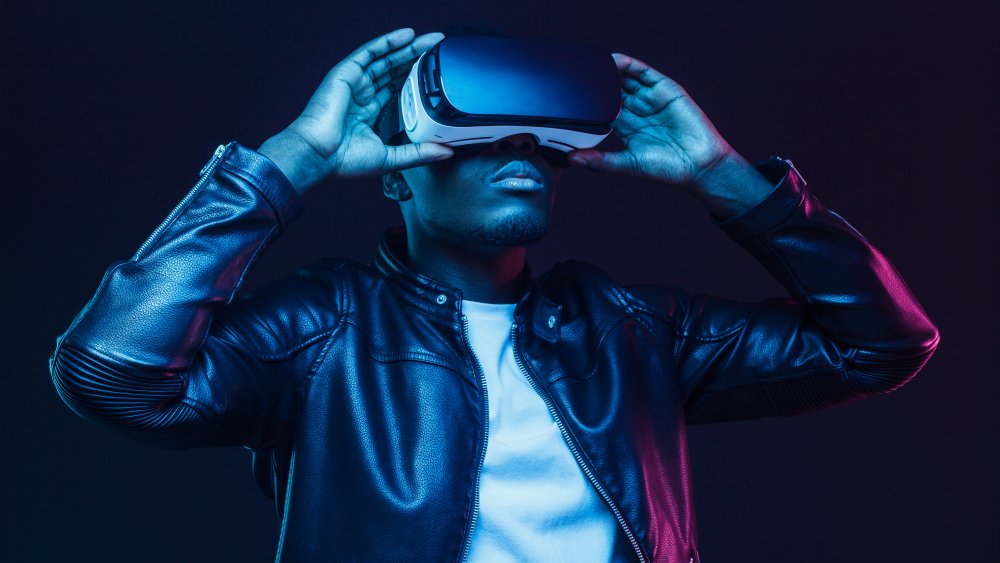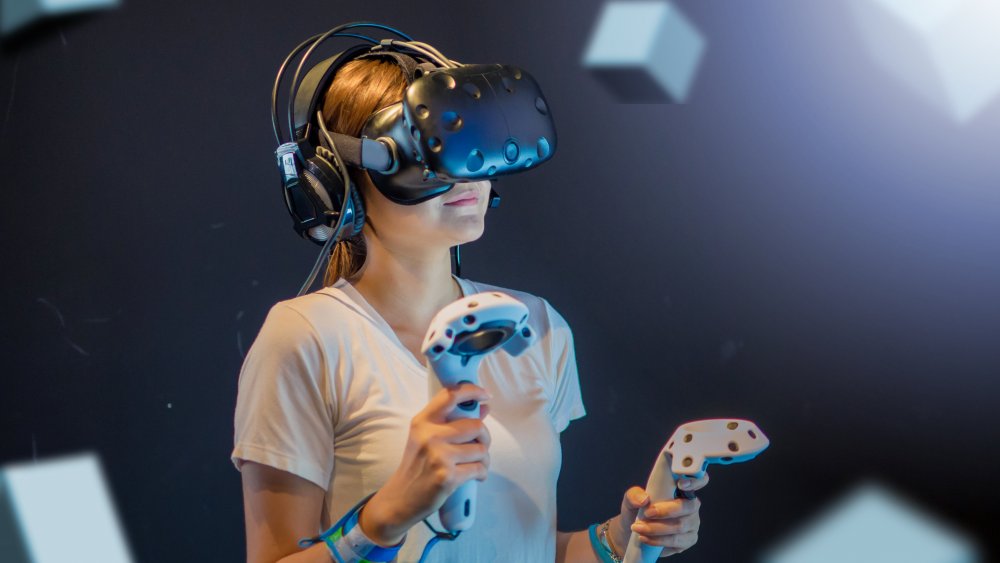The Real Reason VR Makes Some People Sick
The virtual reality revolution hasn't happened yet, despite promising growth and tech advancements like Microsoft's HoloLens 2 and Facebook's Oculus Rift. Even so, the VR market has a lot of potential, and analysts predict it will only get bigger. According to Statista, the market for virtual reality hardware and software, which generated $6.2 billion in 2019, is expected to grow to $16 billion by 2022.
Despite these promising figures, virtual reality has some hurdles to get over if it wants to become a staple in homes across the world, especially when it comes to user experience. Companies need to provide compelling content and easy to use software while managing the expectations of modern consumers. Many people have encountered perfect visions of VR technologies in movies and other media and may not be quite as familiar with what's actually possible.
Another major challenge is virtual sickness. Virtual reality sickness is real, and it's a problem for individuals who might otherwise become early adopters. But what is it about VR that makes people sick, and how can players manage it so they can still use VR and get in on a new and growing field that's at a crucial stage in its development? Read on.
Simulator sickness has long been an issue
Virtual reality has made many strides, but one thing hasn't really changed: how it affects the user's health. VR sickness is just the latest evolution of simulator sickness, which has been around as long as humans have used simulators to mimic the feeling of driving or controlling a vehicle in motion. It is also referred to as "cybersickness."
"With contemporary commercially available VR systems, the incidence of motion sickness after only 15 minutes is anywhere from 40 to 70 percent," Thomas Stoffregen, a kinesiologist at the University of Minnesota, told Inside Science. He even said that for some applications, almost 100 percent of users get sick.
People who experience this side effect after being exposed to virtual reality environments can exhibit nausea and vomiting symptoms, along with discomfort, drowsiness, disorientation, and fatigue. However, symptoms vary in severity and range depending on many factors, from gender and stress levels to individual tolerance, length of exposure, and the type of VR device. You can be sick for up to four hours.
Why do people get sick after using VR devices?
Researchers have come up with several theories to explain why people get motion sickness and have applied these to the field of simulator sickness. The theories examine different mechanisms, but the main takeaways are similar: when receiving mismatched sensory information, your body parts disagree about what is happening to you, which makes you feel ill.
The most popular theory suggests simulator sickness is caused by a conflict between different sensory signals — this includes your vision, your vestibular systems (inner ear), and your proprioceptive system, which integrates your senses, muscles, and joints to determine where the body is in space. When the information these systems receive doesn't match up, you have issues.
Another potential theory is the neural mismatch model, which says your neural storage keeps information on hand, and when it receives sensory information that doesn't match your previous experiences, you get sick. Other ideas elaborate on both these theories — there's even an old study that says your body treats the sensory differences like a toxin.
Experts have a general understanding of why simulator sickness happens, but they're still trying to figure out how. Once this is determined, they'll be better equipped to predict, treat, and hopefully prevent the effects of cybersickness. This will take time and more research.
How to combat the effects of VR sickness
There are some things researchers do know about virtual reality-based sickness that can help you mitigate the effects. A fixed point helps. Also, if there is a mismatch between visuals and simulator motion, you may get sick — and the bigger the lag, the worse the symptoms. Developers are starting to address this in their products, but you can help yourself through these methods:
- Build your tolerance through short gaming sessions. If you start to feel sick, sit down.
- Use a fan. Cool air flowing over you can make a difference.
- Use natural and pharmaceutical remedies for motion sickness. Ginger and Dramamine can help curb symptoms.
- Make sure you have food in your stomach and that you're well-hydrated.
- Use a timer to schedule frequent breaks, even if you don't feel any symptoms coming on.
With so many interesting developments in the industry, you may wish to get in on the VR scene before it gets too big. Take precautions and you'll minimize your problems when jumping on the virtual bandwagon.




